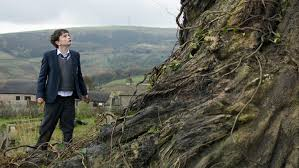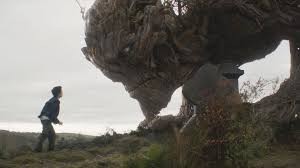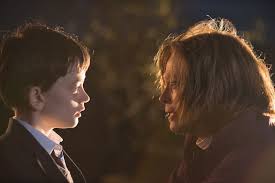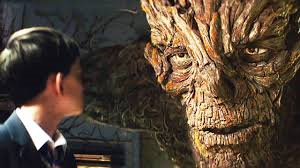Movie Review: A Monster Calls

Director J.A Bayona’s adaptation of the hybrid fantasy novel of the same name by Patrick Ness (from an original idea by the late Siobhan Dowd) is that rare type of film in cinema today, a darkly fantastic story that should appeal to a plethora of age groups, though it is definitely not a tale for the very young. Conor O’Malley (the superb Lewis MacDougall) is a 12-year-old beset by a variety of problems at home and elsewhere. His beloved mother Lizzie (Felicity Jones) has a terminal illness and Conor resents the increasing interventions by his grandmother (Sigourney Weaver) who dislikes a mess as much as she derides his estranged father. At school, meantime, Conor’s woes come in the shape of school bullies who appear entirely devoid of compassion given his fragile domestic situation. One of them in particular takes well-aimed barbs at Conor’s proclivity for daydreaming. And indeed it is the case that the young man has a highly developed imagination which is complemented by his dexterous skills as a budding illustrator. Then one night, as his digital clock flashes 12.07, Conor hears a strange rumbling sound from the nearby church cemetery where a solitary yew tree resides. His mother later tells him that this tree is hundreds of years old. The monster (as voiced by Liam Neeson) who emerges from it is equally adamant of his longevity and commensurate experience.

The monster makes a tentative deal with the incredulous boy. He will impart three stories in exchange for a fourth one which must come from Conor himself and must be the truth behind his recurring nightmare. There follows a tale concerning an ageing monarch, a young prince and a step-mother queen who is (correctly as it turns out) perceived to be a witch. The second tale, which comes on a separate occasion, centres on a grasping apothecary and the seemingly righteous parson who publicly denounces him and his practices. Each tale – as narratives in this particular genre go – is meant to point out a complex truth which underpins it. They’re intended as Conor’s very own Aesop’s Fables. But the resistant youth is either slow, or unwilling, to grasp them and apply their messages to his own predicament.

Matters hardly get better when Conor’s father (Toby Kebbell) arrives from the US. The handsome and charming Dad (read prince here) has a new family stateside now and wishes that Conor might soon meet his half-sister in Los Angeles. He also incurs the boy’s annoyance by addressing him as kid. As Conor’s Mom’s health declines, the boy is forced to go stay with his unfeeling gran, as he regards her. Some furniture smashing on his part at the conclusion of the monster’s second tale drives a further wedge between the two. And the monster’s final abridged narrative (concerning a man who is invisible because no one ever sees him) lands Conor in trouble at school following a provocation by his chief tormentor. The monster, meanwhile, is pressing him too. Conor must tell him his own story; and in the process reveal the truth behind his quite lifelike nightmare.

This is a film infused with real heart and pathos, shades of darkness abounding, and backed up by several fine performances and subtle direction on the part of its helmer Bayona (The Orphanage, The Impossible). As far as themes go, A Monster Calls examines matters such as impending loss and how we process the pain of a loved one. Do we wish for them to cling on to a decaying life for our own selfish motives? Or should we practically, even coldly, hope that their suffering will come to an end as mortality intervenes? Do such dark thoughts make for a bad person? The monster’s tales highlight the complexity of such seminal moments in life experience. No answer is quite correct. No choice taken can be definitively lauded or admonished. Then there is the cast itself which is quite exemplary. Jones is quietly effective as the ailing Mom; Weaver is suitably strict, but equally compassionate when required; Liam Neeson – in motion capture mode – delivers one of his best performances in recent years. The film, quite appropriately, belongs to Lewis MacDougall in the main role. Teary-eyed at times and then aggrieved by his plight, the young Scottish actor has a bright future ahead if he can carry such acting range into his teens and beyond. Geraldine Chaplin turns up briefly as the head teacher of his school. The script by Patrick Ness himself pulls no punches in terms of its inexorable denouement. But the final scene is an absolute inspiration as themes and personal experience coalesce. Quite poignantly, the story’s originator Dowd passed away from cancer herself before she could fully develop her idea. Ness’s subsequent novel and this cinematic adaptation have more than honoured her memory. Affecting and with resonant tones which will linger long in the mind. 2017 already has one of its best films.
Rating: A